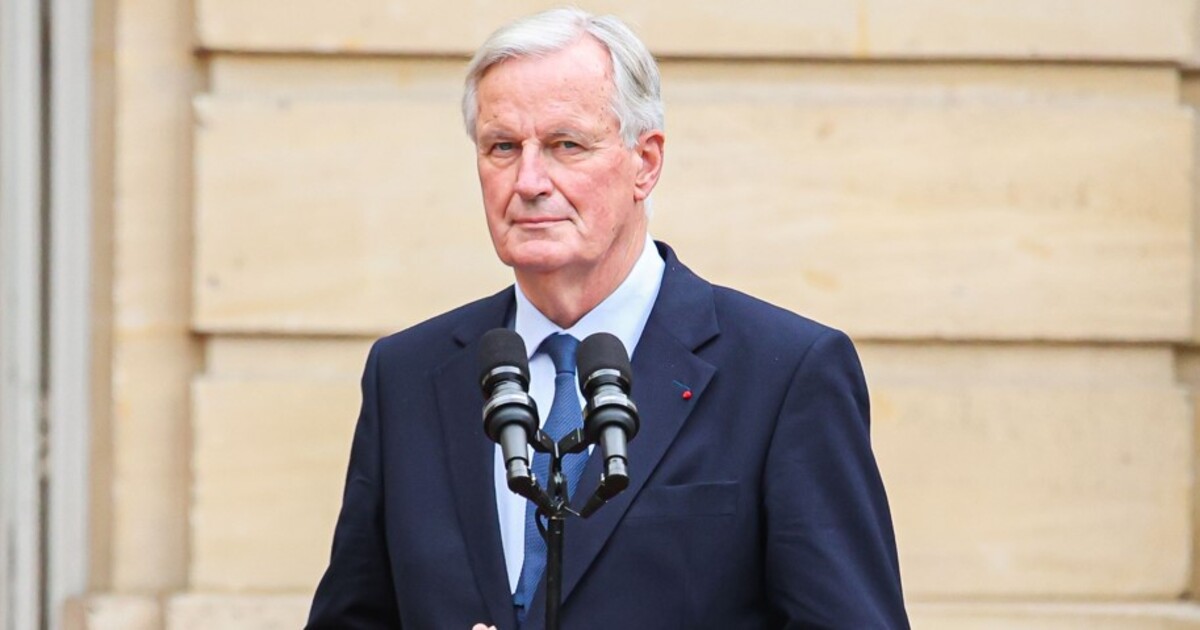Michel Barnier: Succeed, Muddle Through or Forced to Resign?
France’s ancien régime no longer works, but everybody wonders what comes next.
September 20, 2024

A Strategic Assessment Memo (SAM) from the Global Ideas Center
You may quote from this text, provided you mention the name of the author and reference it as a new Strategic Assessment Memo (SAM) published by the Global Ideas Center in Berlin on The Globalist.
Paris. I have been patrolling the corridors of Paris politics – ministers, politicians, influencers – ever since I wrote the first biography in English of François Mitterrand 40 years ago.
Unless reason prevails…
In all those years, I have never come across such disarray, uncertainty and fear. Unless reason prevails, France may be on the brink of a breakdown of democratic, give-and-take politics.
Michel Barnier, the EU’s former Brexit negotiator, twice a successful EU Commissioner and former Foreign Minister of France, has been named Prime Minister.
No one more experienced, crafty and patient as Michel Barnier
However, so far two main blocks of deputies – Marine Le Pen’s extreme right National Rally and the New Popular Front an alliance of communists, Greens, ultra- left anti-capitalists and left-overs from previous Socialist governments – refuse to make normal law-making possible again.
Under those circumstances, a return to normal government may be “Mission Impossible” even for a politician as experienced, as crafty and as patient as Michel Barnier.
So far, there is simply no majority for any party or coalition of deputies visible or emerging that would have a majority to vote laws.
The most popular politician in France
One strong ray of hope is that Barnier has just been voted the most popular politician in France.
That matters at a juncture like this – even if Barnier’s popularity is more a comment on the dislike and rejection of all other mainstream political figures in France, including President Macron.
The clear and present danger
The danger the traditional parties of French politics face is that, if they can’t agree among each other, it will be very hard, if not impossible, to stop the rise of Marine Le Pen.
So far, her National Rally Party has thankfully shown it isn’t ready for prime time. In the most recent parliamentary elections this summer, Le Pen’s team had to suspend dozens of candidates.
Why, you wonder? They had been found out via social media to be anti-semitic, anti-Muslim, racist, or pro-Putin.
Even so, Le Pen’s party still got most votes in the European Parliament elections in June.
Easy math: One-third does not a majority make
Learned articles in French papers are urging French deputies to learn the art of coalition government.
Those efforts seem to be frustrated by efforts by Le Pen and the left bot insisting that their respective one-third of total votes entitles them to form a government and name ministers from their own camp.
Why not behave like adults?
Some political grandees, mainly on the old governing socialist left, are calling for proportional representation (PR) as the way out of the ungovernability impasse.
France used a PR system in the fourth republic between 1946 and 1958. In those 12 years, 21 different PR based governments came and went.
They produced the disasters of the Vietnam and Algerian wars and left in 1958 to see de Gaulle return from internal exile and being granted executive presidential powers which all French presidents since, including Macron, have inherited.
Now what happens?
From discussions in Paris with veteran French political figures and long-time observers of French politics in recent days, there are two scenarios.
The first sees Barnier – who is a social or left-wing Gaullist, not unlike the Adenauer era CDU in Germany – unable to find ministers outside his own former party which came fifth in the July National Assembly elections.
That means he cannot find a majority to pass any law, including a national budget which is needed to cut France’s massive and growing deficit.
In this scenario, Barnier resigns and France moves to a presidential election followed by National Assembly elections.
Who will succeed Macron?
There is Le Pen, but she remains toxic and her still hate-ridden politics of division may be more than a French democratic market can accept.
How about a candidate from the ranks of the Socialists? They may finally have the courage to do what the Labour Party did when it dumped Jeremy Corbyn and dissociate themselves once and for all from Jean-Luc Mélenchon.
The old Gaullist right may run Barnier for President in 2027. Note that he has just called for the rich to pay higher taxes to help the disastrous state of French finances.
Right now, though, no one in France knows who would win a 2025 presidential election.
Or will Barnier manage to muddle through?
The alternative scenario is that Barnier muddles along. That would imply that he can find enough votes via the usual offers that can be made to ambitious politicians to vote one way or the other.
If they come to reason, as well they should, France’s Socialists may ultimately discover that they, too, want to avoid a rupture next spring.
As in Britain, Spain, or Poland, their goal should be to have a non-rightist party work towards winning a parliamentary majority and even have a crack at the presidency.
Mitterrand’s advice
François Mitterrand’s favourite political watchword was “Il faut donner le temps au temps.” Give time to time. Festina lente. Make haste slowly.
France has had fourteen constitutions and five republics since the French revolution in 1789. A new constitution and a sixth republic may soon take shape.
Takeaways
France’s ancien régime no longer works, but everybody wonders what comes next.
Unless reason prevails, France may be on the brink of a breakdown of democratic, give-and-take politics.
A return to normal government may be “Mission Impossible” even for a politician as experienced, as crafty and as patient as Michel Barnier.
One strong ray of hope is that Barnier has just been voted the most popular politician in France.
The danger the traditional parties of French politics face is that they can’t agree.
The old Gaullist right may run Barnier for President in 2027. Note that he has just called for the rich to pay higher taxes to help the disastrous state of French finances.
If Barnier muddles along it would imply that he can find enough votes via the usual offers that can be made to ambitious politicians to vote one way or the other.
A Strategic Assessment Memo (SAM) from the Global Ideas Center
You may quote from this text, provided you mention the name of the author and reference it as a new Strategic Assessment Memo (SAM) published by the Global Ideas Center in Berlin on The Globalist.


